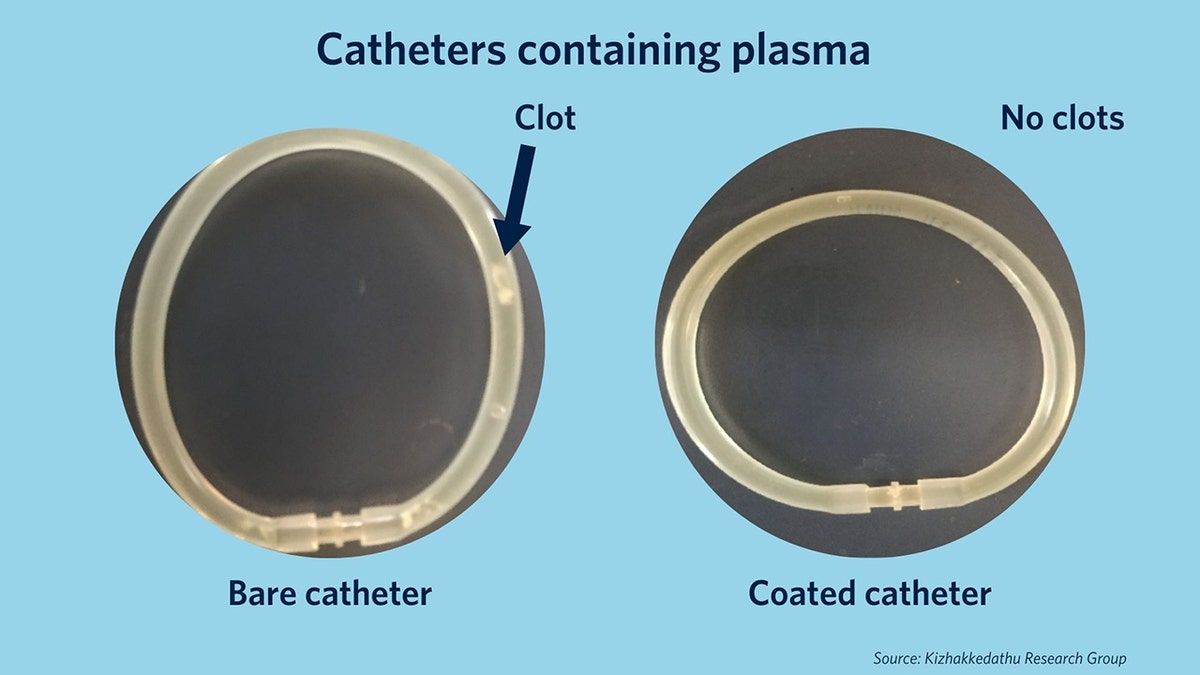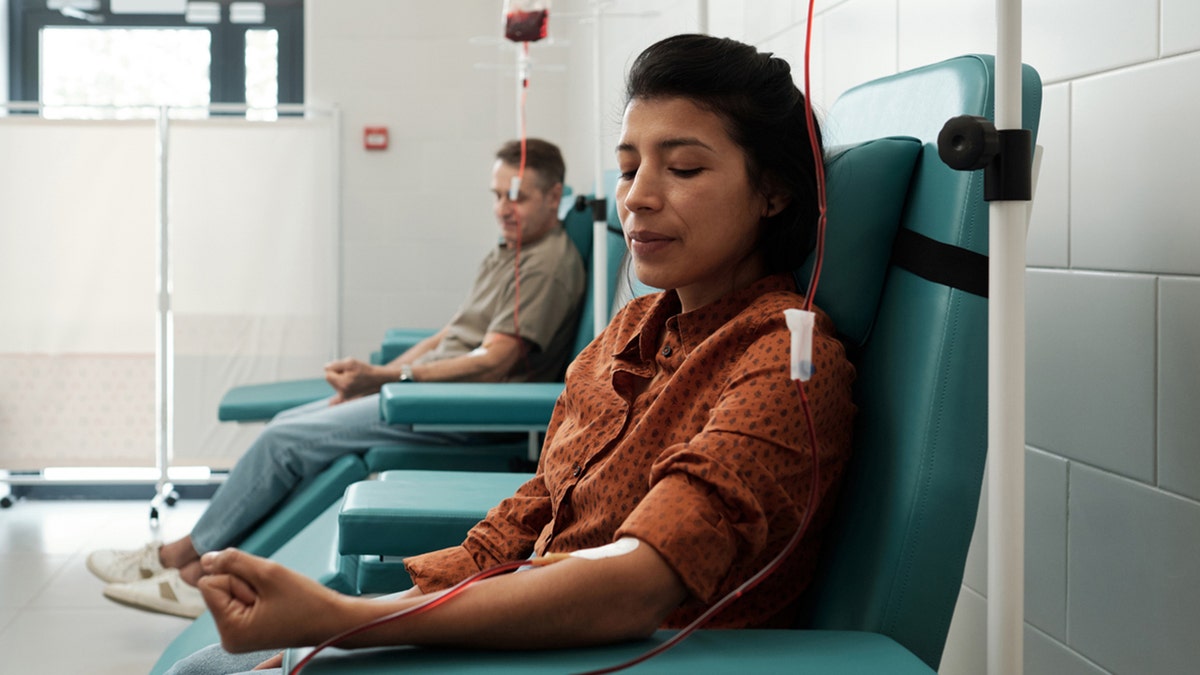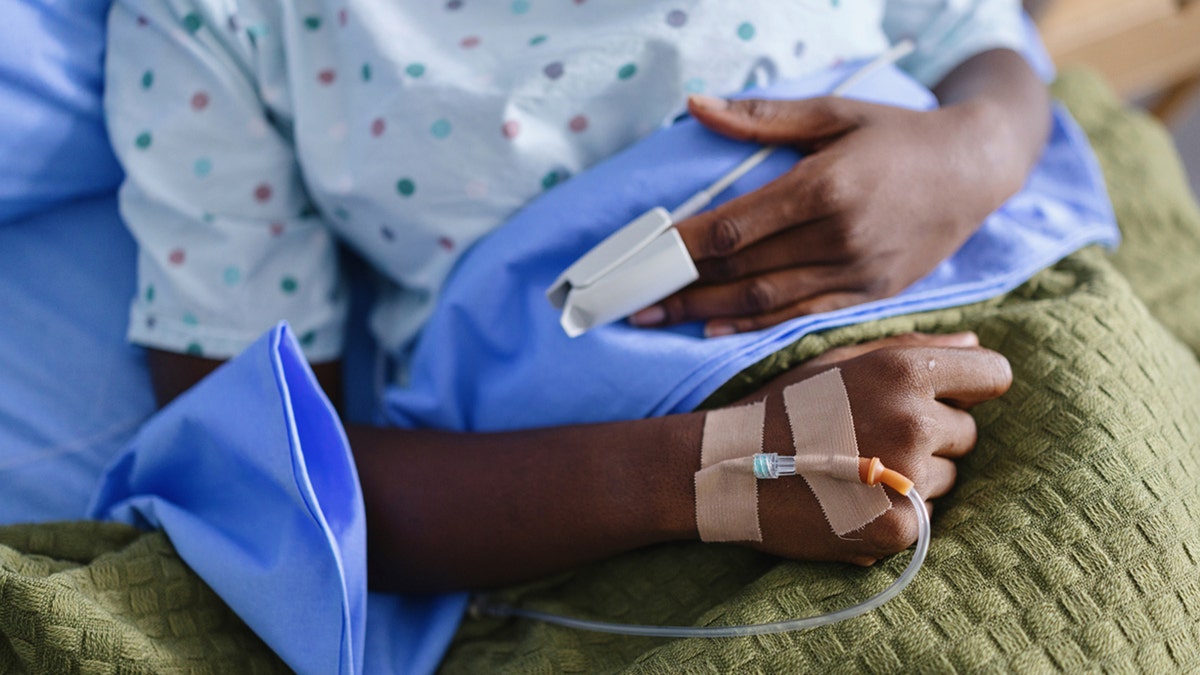Medical devices could become safer with this new breakthrough, experts say
Researchers from the University of British Columbia (UBC) have developed what’s being considered “a groundbreaking coating” that could make medical devices safer.
For millions of patients, this could mean reducing the risk of thrombosis (or blood clot formation) and dangerous bleeding, according to a UBC press release.
The new material, which is designed for tubing in various medical devices, mimics the “natural behavior of blood vessels.”
HIV-POSITIVE TRANSPLANTS NOW PERMITTED FOR LIVERS AND KIDNEYS
This allows for the safer use of blood-contacting devices, such as catheters, stents, blood-oxygenation machines and dialysis machines, the release stated.

The coating could prove especially helpful in cases where blood clots are a bigger concern.
Blood thinners are usually prescribed in high doses to prevent clots in machine users, but this can increase the risk of dangerous bleeding, according to the university.
“Since almost all synthetic materials activate blood upon contact, this is an enormous challenge.”
“By designing a coating that mimics the body’s natural approach to preventing clots, we’ve created a solution that could dramatically reduce the need for risky blood thinners before and after patients use these devices,” the study author wrote in an email.
Dr. Jayachandran Kizhakkedathu, professor of pathology and laboratory medicine at the University of British Columbia, shared with Fox News Digital that this discovery could be a “transformative step in the development of safer medical devices.”
LEUKEMIA PATIENT RECEIVES FIRST-EVER BONE MARROW TRANSPLANT FROM DECEASED ORGAN DONOR
The research – which was published in the journal Nature Materials – confirmed that mimicking the body’s own mechanisms, instead of repelling blood components, is “key to truly biocompatible device design,” according to Kizhakkedathu.

Kizhakkedathu mentioned that there has been a “steady rise” in the use of blood-contacting devices over the past few decades, but noted that this has been limited by blood clot risk, which can be “detrimental to the health of patients.”
CLICK HERE TO SIGN UP FOR OUR HEALTH NEWSLETTER
“Since almost all synthetic materials activate blood upon contact, this is an enormous challenge,” he went on.
Developing materials that can “inherently avoid coagulation activation” has been a long-term goal, according to Kizhakkedathu.
For more Health articles, visit www.foxnews.com/health
“There are no effective methods to prevent thrombosis and inflammation in devices, and little progress has been made over several decades in spite of significant efforts,” he went on.

“However, our chemistry design allowed us to develop a non-toxic polycationic molecule and develop a surface that prevents blood clotting.”
Kizhakkedathu mentioned that this development is still in the early stages and needs further research in more challenging cases and among other animal models.
CLICK HERE TO GET THE FOX NEWS APP
“We hope this approach will also inspire and benefit other scientists in this field,” he told Fox News Digital.
“For the general public, there is increased hope to create highly improved medical devices where thrombosis concern is no more.”
